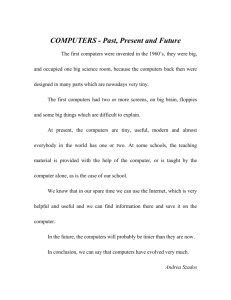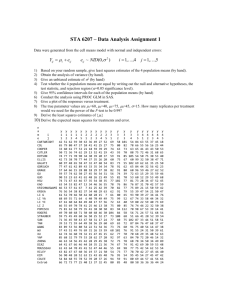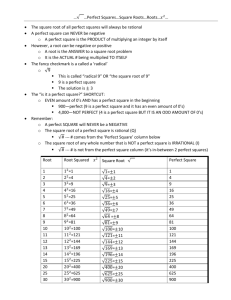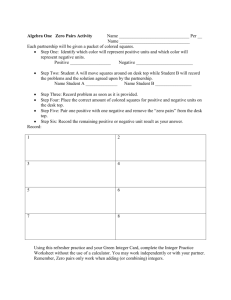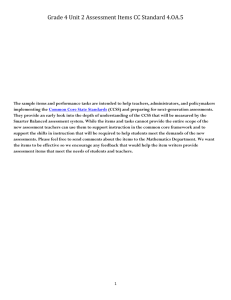Chemistry Worksheet: Size of Things & Unit Conversions
advertisement
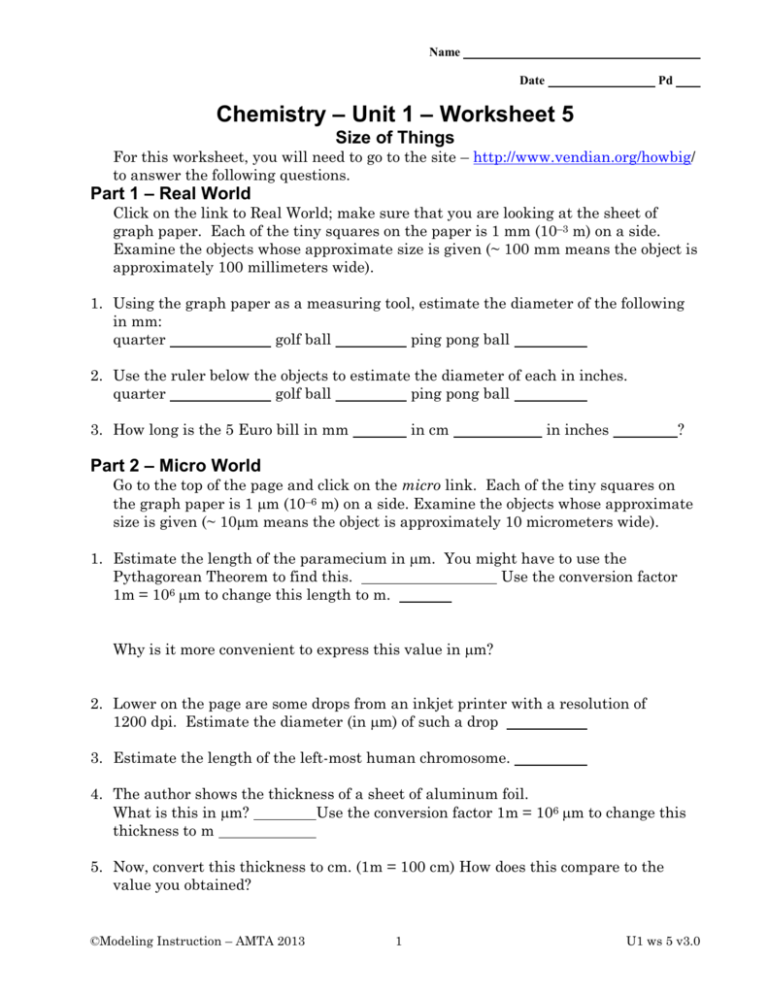
Name Date Pd Chemistry – Unit 1 – Worksheet 5 Size of Things For this worksheet, you will need to go to the site – http://www.vendian.org/howbig/ to answer the following questions. Part 1 – Real World Click on the link to Real World; make sure that you are looking at the sheet of graph paper. Each of the tiny squares on the paper is 1 mm (10–3 m) on a side. Examine the objects whose approximate size is given (~ 100 mm means the object is approximately 100 millimeters wide). 1. Using the graph paper as a measuring tool, estimate the diameter of the following in mm: quarter golf ball ping pong ball 2. Use the ruler below the objects to estimate the diameter of each in inches. quarter golf ball ping pong ball 3. How long is the 5 Euro bill in mm in cm in inches ? Part 2 – Micro World Go to the top of the page and click on the micro link. Each of the tiny squares on the graph paper is 1 m (10–6 m) on a side. Examine the objects whose approximate size is given (~ 10m means the object is approximately 10 micrometers wide). 1. Estimate the length of the paramecium in m. You might have to use the Pythagorean Theorem to find this. Use the conversion factor 6 1m = 10 m to change this length to m. Why is it more convenient to express this value in m? 2. Lower on the page are some drops from an inkjet printer with a resolution of 1200 dpi. Estimate the diameter (in m) of such a drop 3. Estimate the length of the left-most human chromosome. 4. The author shows the thickness of a sheet of aluminum foil. What is this in m? Use the conversion factor 1m = 106m to change this thickness to m 5. Now, convert this thickness to cm. (1m = 100 cm) How does this compare to the value you obtained? ©Modeling Instruction – AMTA 2013 1 U1 ws 5 v3.0 Go back to the top of the page and click on the nano link. Each of the tiny squares on the graph paper is 1 nm (10–9 m) on a side. Examine the objects whose approximate size is given (~ 10nm means the object is approximately 10 nanometers wide). 1. Scroll down to find the circle that approximates a globular protein. Estimate the size of a globular protein in nm. Use the conversion factor 1m = 109 nm to convert this value to meters. It would be more convenient to express this value in scientific notation. Do so. . 2. Estimate the length (in nm) of a single wall nanotube, an engineered molecule containing carbon atoms 3. Roughly how many times larger is the smallest virus than a buckyball? Part 4 – Kilo World Go back to the top of the page and click on the kilo link. Each of the tiny squares on the graph paper is 1 kilometer (103 m) on a side. Examine the map of a portion of Massachusetts. 1. Estimate the distance (in km) between Boston and Cambridge. 2. Scroll down to find the ruler. Use the ruler on the sheet to determine a conversion factor between miles and kilometers. km = miles 3. Scroll down to the next map. Estimate the length (in km) of Nantucket Is. Use the conversion factor from above to change this length to miles . If you could walk a mile in 30 minutes, how long would it take you to walk the length of this island? Show work. 4. Lower on the page is a satellite photo of a portion of the Rodeo-Chediski fire, one of the worst forest fires in Arizona history (2002). Over 460,000 acres of forest burned. The green square next to the image of the fire shows 1 million, or 106 acres. Convert this area to km2, then determine the area scorched by the fire in km2. Show your work. ©Modeling Instruction – AMTA 2013 2 U1 ws 5 v3.0
